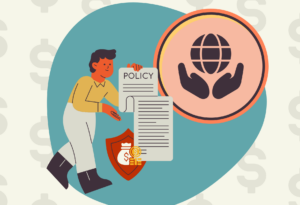Changes in Single Audit Requirements and Thresholds: What Nonprofits Need to Know for 2025
As a nonprofit organization, staying informed about regulatory changes is crucial for maintaining compliance and effectively managing your finances. One significant update on the horizon is the increase in the Single Audit threshold from $750,000 to $1,000,000 for organizations with fiscal years beginning on or after October 1, 2024. This change will have a substantial impact on many nonprofits and their audit requirements. In this comprehensive guide, we’ll explore the new Single Audit threshold, its implications, and how your organization can prepare for these changes.
Understanding the Single Audit
Before diving into the specifics of the new threshold, let’s review what a Single Audit entails and why it’s important for nonprofits.
What is a Single Audit?
A Single Audit, also known as a Uniform Guidance Audit, is a rigorous, organization-wide examination of an entity that expends $1 million or more of federal funds in a fiscal year. This audit is designed to provide assurance to the federal government that its funds are being used appropriately and that the organization is complying with the applicable rules and regulations.
Purpose of Single Audits
Single Audits serve several crucial purposes:
- Ensuring compliance with federal regulations
- Identifying potential misuse of federal funds
- Promoting transparency in nonprofit financial management
- Maintaining public trust in organizations receiving federal support
The New Single Audit Threshold for 2025
Now, let’s examine the upcoming changes to the Single Audit requirements that will affect nonprofits starting in fiscal year 2025.
Increase to $1 Million
The most significant change is the increase in the Single Audit threshold from $750,000 to $1,000,000. This means that nonprofits will only be required to undergo a Single Audit if they expend $1 million or more in federal awards during their fiscal year.
Effective Date
This new threshold will apply to fiscal years beginning on or after October 1, 2024. For many organizations, this means the change will take effect in the fiscal year 2025.
Impact on Nonprofits
The increased threshold will have several implications for nonprofit organizations:
- Reduced administrative burden for smaller organizations
- Potential cost savings on audit expenses
- More flexibility in resource allocation for some nonprofits
- Changes in federal oversight for organizations falling between the old and new thresholds
Who Needs a Single Audit Under the New Rules?
Understanding whether your organization will require a Single Audit under the new threshold is crucial for proper planning and compliance.
Organizations Expending $1 Million or More
Nonprofits that spend $1 million or more in federal awards during their fiscal year will still be required to undergo a Single Audit. These organizations should continue to prepare for this comprehensive examination as they have in previous years.
Organizations Below the New Threshold
Nonprofits that previously required a Single Audit but now fall below the new $1 million threshold will no longer be subject to this requirement. However, these organizations should still maintain strong financial management practices and be prepared for other types of audits or reviews that may be required by grantors or state regulations.
Importance of Tracking Federal Expenditures
Regardless of whether your organization falls above or below the new threshold, it’s crucial to maintain accurate records of all federal expenditures. This tracking will help you determine your audit requirements and demonstrate good financial stewardship.
Benefits of the Increased Threshold
The new $1 million threshold brings several advantages to the nonprofit sector:
Reduced Administrative Burden
Organizations that fall between the old and new thresholds will experience a significant reduction in administrative work related to Single Audit preparation and execution. This can free up valuable time and resources for mission-focused activities.
Cost Savings for Nonprofits
Single Audits can be expensive, often costing tens of thousands of dollars. Nonprofits that no longer require this audit may see substantial cost savings, allowing them to redirect funds to program services or other organizational needs.
Refocusing Resources on Core Mission Activities
With less time and money spent on audit preparation, organizations can focus more on their core mission activities and serving their communities. This shift can lead to increased impact and effectiveness in achieving nonprofit goals.
Other Key Changes in the 2024 Uniform Guidance
The increase in the Single Audit threshold is part of a broader update to the Uniform Guidance. Here are some additional changes that nonprofits should be aware of:
Increase in Type A Program Threshold
The threshold for Type A programs, which are larger federal programs subject to more rigorous audit procedures, will also increase. This change will affect how auditors determine which programs to test in detail during a Single Audit.
Changes to Equipment and Supply Thresholds
The Uniform Guidance update includes revisions to the thresholds for classifying purchases as equipment or supplies. This may impact how organizations categorize and track certain expenditures.
Updates to Indirect Cost Rates
There are modifications to the rules surrounding indirect cost rates, which could affect how organizations recover overhead costs associated with federal programs.
Preparing for the New Single Audit Requirements
Even if your organization will no longer require a Single Audit under the new threshold, it’s essential to prepare for these changes and maintain strong financial management practices.
Reviewing and Updating Financial Policies
Take this opportunity to review and update your organization’s financial policies and procedures. Ensure they align with the new Uniform Guidance requirements and reflect best practices in nonprofit financial management.
Enhancing Internal Controls
Strong internal controls are crucial for any nonprofit, regardless of audit requirements. Use this transition period to assess and improve your organization’s internal control systems, focusing on areas such as segregation of duties, approval processes, and financial reporting.
Training Staff on New Requirements
Educate your finance team and other relevant staff members about the changes in Single Audit requirements. Ensure they understand the implications for your organization and any new processes or procedures that may be implemented as a result.
Implications for Nonprofit Financial Management
The changes in Single Audit requirements have broader implications for nonprofit financial management:
Importance of Accurate Federal Award Tracking
Maintaining precise records of federal award expenditures remains crucial, even if your organization falls below the new threshold. Accurate tracking ensures you can easily determine your audit requirements and demonstrate compliance with grant terms.
Budgeting Considerations
Organizations that will no longer require a Single Audit should factor this change into their budgeting process. Consider how to reallocate the funds previously set aside for audit expenses to support other organizational priorities.
Long-term Financial Planning Strategies
Use this change as an opportunity to reassess your organization’s long-term financial planning strategies. Consider how the reduced administrative burden and potential cost savings can be leveraged to strengthen your nonprofit’s financial position and impact.
Maintaining Compliance Without a Single Audit
For organizations that will no longer require a Single Audit, it’s important to maintain a strong compliance posture:
Best Practices for Federal Award Management
Continue to follow best practices for managing federal awards, including maintaining detailed records, adhering to grant terms and conditions, and implementing strong financial controls.
Alternative Audit and Review Processes
Consider implementing alternative audit or review processes to ensure ongoing financial accountability. This might include voluntary audits, financial reviews, or enhanced internal monitoring procedures.
Importance of Ongoing Self-Assessment
Regularly assess your organization’s financial management practices and compliance with federal requirements. This proactive approach can help identify and address potential issues before they become significant problems.
The Future of Federal Award Oversight
As the nonprofit sector adapts to these new requirements, it’s worth considering potential future trends in federal award oversight:
Potential Trends in Audit Requirements
Stay informed about potential future changes to audit requirements. The federal government may continue to adjust thresholds and requirements based on the effectiveness of these new changes.
Technological Advancements in Compliance Monitoring
Keep an eye on emerging technologies that may impact how federal agencies monitor grant compliance. Automation and data analytics tools may play an increasing role in oversight processes.
The Role of Transparency in Nonprofit Operations
Maintain a commitment to transparency in your financial operations. Even without a Single Audit requirement, donors, grantors, and the public will continue to expect clear and accurate financial reporting from nonprofits.
Conclusion
The increase in the Single Audit threshold to $1 million represents a significant change for many nonprofit organizations. While this change will reduce the administrative burden for some nonprofits, it’s crucial to maintain strong financial management practices and compliance with federal requirements.
As your organization navigates these changes, remember that professional guidance can be invaluable. Temple Management Consulting specializes in nonprofit financial management and can help you understand and prepare for the new Single Audit requirements.
Don’t let these changes catch you off guard. Contact Temple Management Consulting today to ensure your nonprofit is ready for the new Single Audit landscape in 2025 and beyond. Our team of experts can provide personalized advice and support to help your organization thrive in this evolving regulatory environment.



